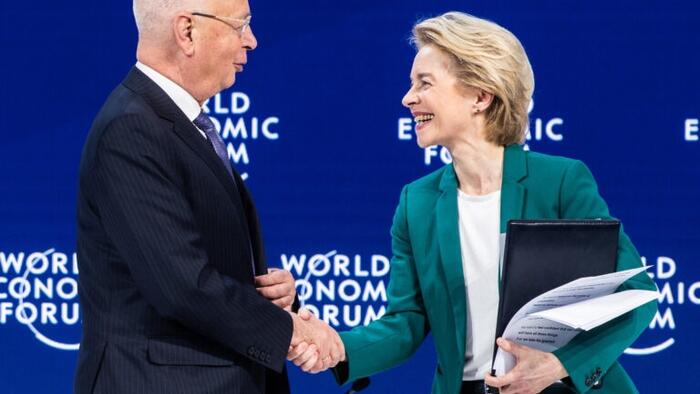Key Takeaways
- Globalism vs. Nationalism: Globalism (countries working under shared systems) is increasingly framed as “heroic,” while nationalism (prioritizing one’s country) is painted as dangerous.
- Historical Shift: Since WWII, institutions like the UN, IMF, and World Bank have pushed global economic ties, weakening national independence.
- EU’s Contradictions: European leaders claim to defend democracy but face accusations of authoritarianism (e.g., censoring dissent, arresting political opponents).
- Economic Risks: Europe’s economy relies heavily on the U.S. If the U.S. stumbles, Europe could collapse.
What’s Globalism?
Globalism promotes worldwide cooperation through:
- Shared Systems: Currency exchange, trade deals, and organizations like the World Bank.
- Loss of Sovereignty: Countries give up some control over policies (e.g., taxes, imports) to follow global rules.
- Elite Influence: Critics argue groups like the World Economic Forum (WEF) and Club of Rome push for a “one-world government” controlled by powerful figures.
Example: A 1992 quote from a U.S. official: “Nations will become obsolete… all will answer to a global authority.”
Why Europe’s “Pro-Democracy” Claims Are Controversial
The EU positions itself as a defender of freedom, but critics highlight:
- Censorship: People arrested for online posts or silent prayer near abortion clinics.
- Immigration Policies: Mass migration strains local cultures and safety.
- Political Bias: Right-leaning parties face suppression to prevent election wins.
EU President’s Argument:
- Blames external forces (e.g., Russia) for populist movements.
- Calls Europe a “peace project” without oligarchs—despite accusations of unaccountable leadership.
U.S. vs. Europe: Economic Realities
| Factor | United States | Europe |
|---|---|---|
| Consumer Spending | 30-35% of global total (largest market) | Germany: 3% (EU’s biggest economy) |
| Global Influence | Drives global trade and currency markets | Relies on U.S. demand; vulnerable to crashes |
| Self-Sufficiency | More independent industries | Depends on imports (e.g., energy, goods) |
Risk: If the U.S. economy weakens, Europe’s could collapse due to dependency.
The Globalist Playbook
- Centralize Power: Replace national policies with global rules (e.g., climate agreements, trade standards).
- Vilify Nationalists: Frame them as “chaotic” or “backward.”
- Control Narratives: Media (e.g., The Economist) label globalism as “progressive” and “orderly.”
Critics Say: This erases cultural identity and freedoms, replacing them with top-down control.
Why It Matters
- Identity Crisis: Europeans increasingly feel their traditions are under attack.
- Freedom vs. Security: Globalism promises stability but may require sacrificing local values.
- Economic Tensions: U.S. policies like tariffs disrupt globalist plans, sparking backlash.
In Simple Terms
The article argues that globalist groups are reshaping the world into a tightly controlled system, weakening national independence. While they claim to promote peace and fairness, critics see hypocrisy in their actions (e.g., censorship, economic dependency). The outcome could determine whether Western values survive or fade under centralized power.
